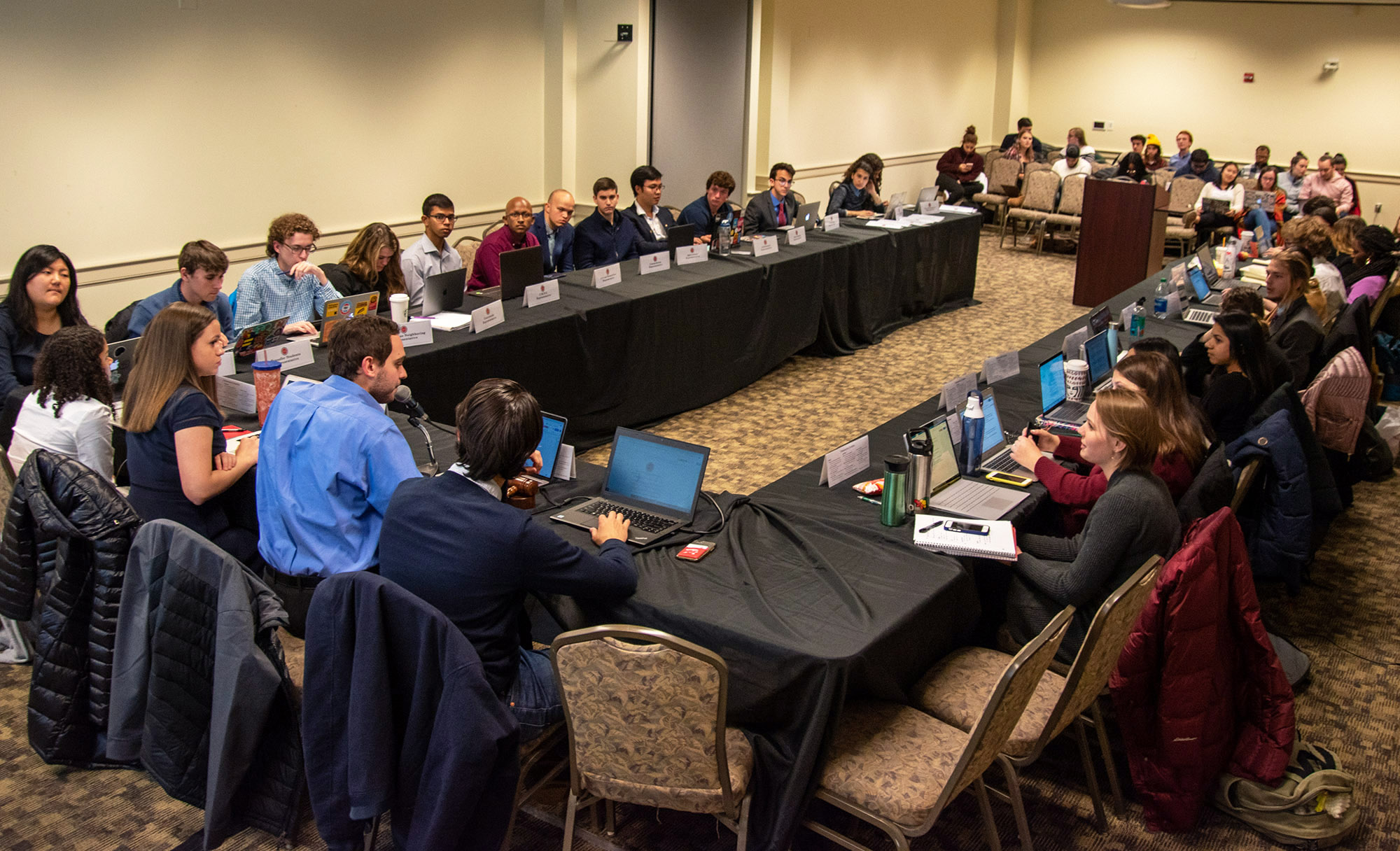Views expressed in opinion columns are the author’s own.
Last semester, gripped by the economic anxiety brought on by the coronavirus pandemic, I frantically applied for the Student Crisis Fund. I heard about the fund through a friend of a friend, and applied with low expectations. I knew the fund was limited, and I wasn’t the only one feeling financially fraught. Therefore, I was surprised and elated when I received $250 from the fund, money I could put toward the lease I was trapped in.
Understanding students’ need for immediate monetary support, the Student Government Association recently allocated $410,249 toward the Student Crisis Fund and other student services. This is solid work from the SGA and should be applauded as such. However, it should not take a catastrophic pandemic for the SGA to put money directly into students’ pockets — and this flow of financial support shouldn’t end when the pandemic does.
Of the almost half a million dollars the SGA allocated to student services, a hefty $300,000 will go directly to students through the Student Crisis Fund. This fund, established in 2001, does exactly what it sounds like: set money aside for students in need. Students can apply for financial support through the fund to help weather any unexpected financial emergencies. When they apply to the crisis fund, students are asked to outline whatever financial assistance they may need, whether it be food, rent, bills or other financial burdens. In a year with seemingly more unexpected emergencies than ever, the fund has never been so important.
Due to the “abrupt change in circumstances” brought on by COVID-19, the SGA had less opportunity for the normal programming and events they would usually put on, leading to a budget surplus. Assuming there won’t be a surplus every fiscal year and — fingers crossed — there won’t be a pandemic every fiscal year, how can this governing body continue providing financial support for the students it serves? The answer is easy: plan for it. It’s time the SGA annually sets aside money for the Student Crisis Fund, building upon its strong decision this year to provide for more students in need. Students should never have to rely on a GoFundMe page or other donations to pay for tuition, medical bills and groceries when this issue is supposed to have been directly addressed by the SGA.
The student leaders and representatives who make up the SGA mean well, but at times their actions feel empty and superficial. Who cares about the cutthroat elections that determine “control” of the governing body? Do the countless edicts about university actions really accomplish anything? It’s nice the SGA always has something to say about pressing issues like mental health or racism, but how does any of their talk translate into concrete action? Unfortunately, to students, it feels like it often doesn’t. The Student Crisis Fund offers an opportunity to change that.
The students who lead the SGA are exactly that: students. As representatives for the entire student body, they know and confront the same emotional, educational and financial stressors all other students face. There’s almost no better cause for the SGA to support than the Student Crisis Fund, yet it hasn’t happened until the pandemic. As student representatives and leaders, SGA members should know more than anyone that what students need the most isn’t increasing programming or events, it’s a financial lifeline.
This university’s administration clearly doesn’t always provide students the monetary resources they need. And while it should be looking out for its students in their hour of need, at the end of the day, this university is a business that has to worry about its bottom line. However, the SGA isn’t like the administration. Its sole purpose is to represent this university’s students and fight on their behalf. And dedicating substantial financial support directly to students who need it the most is the best way to do so.
Maya Rosenberg is a junior journalism and public policy major. She can be reached at maya.b.rosenberg@gmail.com.



